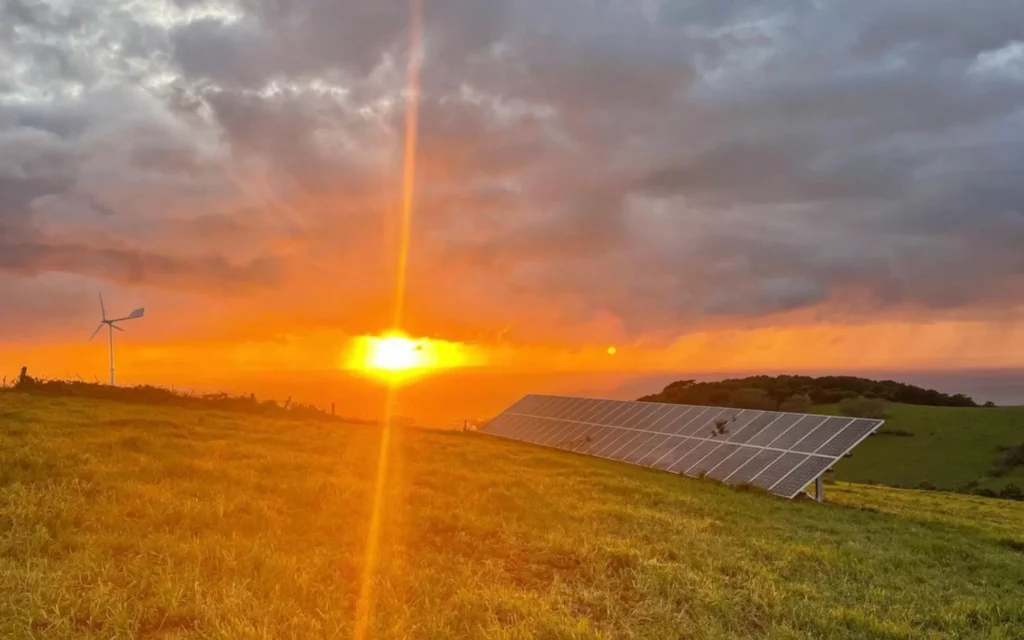Our business has been championing sustainable and regenerative practices over the last seven years. We continue to work on our biggest asset, which is soil. The ability to draw down carbon and store it in soil has been our most significant area of improvement. By removing synthetic fertilisers and chemical inputs and replacing them with biodynamic composts and organic fertiliser, we have saved money and provided bio-available nutrients that can be sprayed back over the pasture. This allows for a healthier plant, increased photosynthesis, deeper root systems and high carbon sequestration.
In 2020 we successfully secured an Energy Innovation grant through the DPI that allowed us to install 60kw Solar and 60kw Battery systems. This effectively means our power is generated and stored on our dairy farm, with excess energy being traded as part of a Carbon Track initiative. The savings are immense, especially in adverse weather events (as we keep experiencing), as we have no more power interruptions on the dairy farm.
Our next major initiative is around water. We’ve designed a series of dams that would hold excess water (9 gigalitres), making us drought tolerant and keeping excess water from flooding waterways and washing out to sea.
How we have achieved sustainable practices on our dairy farm.
One of our first moves was to source compostable single-use items – we started by serving gelato at weekly markets with sugarcane cups and bamboo spoons in 2017.
Plastic is a big issue in food manufacturing, so in 2020, we were able to source Glass Milk bottles and implemented a return system to reduce waste. We had a 60% return rate, and bottles are reused up to 12 times, saving thousands of plastic bottles from waste. Unfortunately, manufacturing demands globally made sourcing packaging very difficult – we are currently researching milk ‘keg’ systems that would allow customers to bring in any sterilised bottle to be refilled in our Pantry store in Kiama. Doing so would remove our packaging all together.
Conventional dairy farming has high inputs, meaning you typically need to buy large amounts of fertiliser and feed. We decided to improve our pasture naturally and have studied under many soil experts – learning from Nicole Masters, Charlie Arnott and Darren Doherty. By enhancing our knowledge and taking logical steps, we have been able to stop input feeding and improve our pasture naturally whilst also breeding a cross-bred cow that is more suited to what we do.
When we stopped feeding grain, we had a large grain silo sitting empty in the middle of our production space. We were able to repurpose that as a cheese maturation room. By applying recycled wood to the outside and running static cooling systems on the inside, we now have a perfect temperature-stable stone structure that provides the ideal environment for maturing our award-winning Dairy Cheddar Cheese.
By being adaptable and open to new ideas, we have sought to restore balance in the ecosystem. When a system works with nature, we have higher yields, fewer overheads and happier animals (and farmers).


